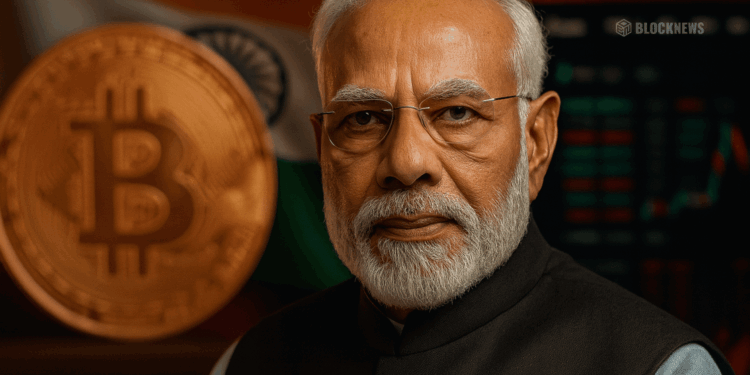- India avoids a full crypto law, fearing it would grant legitimacy to digital assets.
- The country sticks with partial oversight, AML checks, and heavy taxes to limit risk.
- Global peers are moving ahead with stronger frameworks, but India is still waiting and watching.
India, despite being one of the biggest hotspots for crypto adoption worldwide, isn’t ready to go all-in with a sweeping crypto law. According to a government document seen by Reuters, officials are worried that regulating digital assets too heavily could accidentally give the industry the kind of “legitimacy” they’re not comfortable with just yet.
Why India Is Holding Back
The Reserve Bank of India has long waved red flags over cryptocurrencies, warning of their speculative and risky nature. The document highlights that regulating the sector in a comprehensive way would be extremely difficult, if not impossible, and could open the door to “systemic risks” in the financial system. An outright ban isn’t on the table either—because peer-to-peer trades and decentralized exchanges would simply continue beyond the government’s reach.
Instead, India has opted for partial oversight. Exchanges can operate if they register with local authorities for anti–money laundering compliance, but stiff taxes and repeated RBI warnings have kept official trading volumes muted. Despite India’s massive user base, total holdings are only around $4.5 billion—an amount the government argues isn’t big enough to threaten financial stability.
The Fine Line Between Control and Adoption
By keeping regulations vague, India has managed to contain some of the risks. Taxes discourage speculation, and fraud penalties have given regulators a bit of breathing room. But policymakers are still cautious. Crypto rules around the world vary wildly, and India’s stance reflects that uncertainty—it doesn’t want to move too fast and set a precedent it can’t walk back from.
Interestingly, India once considered a total ban back in 2021 but backed away after global pressure. Later, in 2023, the government called for a worldwide framework on digital assets, choosing to delay its own big moves until after the U.S. set clearer rules. Now, with the Trump administration pushing pro-crypto legislation and countries like the UK, EU, and South Korea tightening their frameworks, India is still in watch-and-wait mode.
What This Means Going Forward
For now, don’t expect sweeping reforms in India’s crypto space. Traders and exchanges will have to keep working under the current patchwork of taxes, warnings, and partial oversight. While the government isn’t slamming the door shut on crypto, it’s not swinging it wide open either. That leaves India’s millions of crypto enthusiasts caught somewhere in the middle—active adopters in a country that still isn’t sure it wants to recognize the industry at all.














